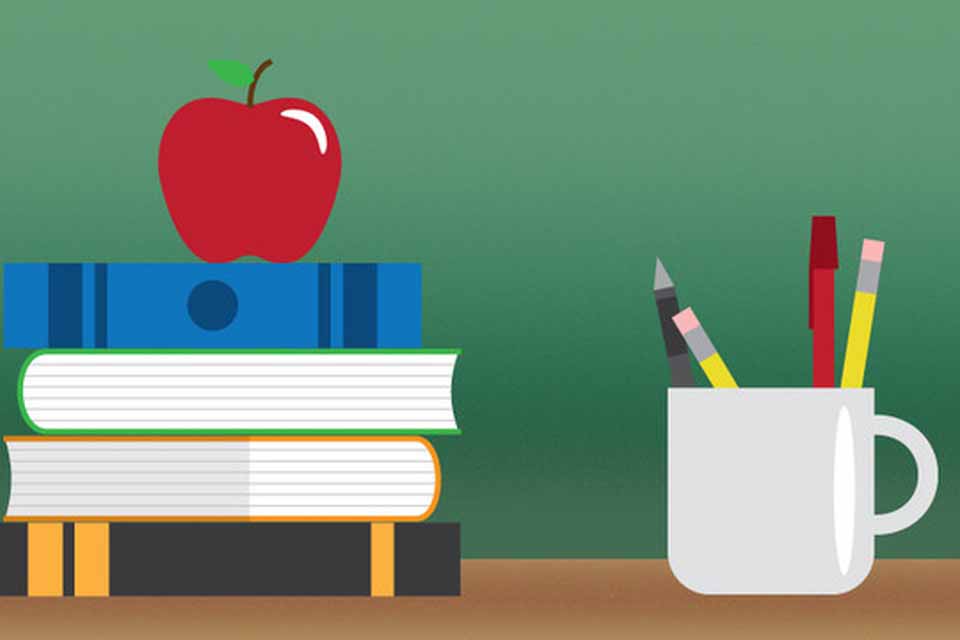Less discussed—but just as crucial to understand—are the ways in which Internet-enabled classrooms and students are thrusting new roles upon teachers. Teaching a classroom of youngsters was never easy, but the common format used to be fairly straightforward, with a teacher at the front of the classroom as the bearer of knowledge, and students generally in their desks as the eager receptacles for that knowledge. Today, if the Internet is present, it’s no secret to anyone that the teacher is no longer the smartest in the room. And this is a good thing—as a long as teachers, administrators, and policy makers give good thought to how this new configuration can best benefit learners.
Future teacher: you deserve some appreciation.
According to a 2016 survey conducted by the Chronicle of Higher Education, the number of college freshmen who plan to major in education is at its lowest point in 45 years. In fact, the number had fallen swiftly over the past decade and a half: in 2016, 4.2 percent of new college students planned to major in education, compared with 11 percent in 2000.
Though Teacher Appreciation Day isn’t until next May, future teachers are among those who deserve to be celebrated – and to celebrate. There’s no need to wait until next spring to talk about the reasons why: For one, the country is currently facing a teaching shortage. The Learning Policy Institute reports that the United States faced a shortfall of approximately 60,000 teachers in the 2015-2016 school year.
This summer, as rising college students are considering what they will choose as their major, we need undergraduates to recognize the educational needs of future generations, and those who have committed to do so shouldn’t be forgotten.
Future teachers can celebrate their participation in Teacher Appreciation Day by taking thoughtful steps toward determining the types of teachers they want to become and the ways in which they will help shape the future of education. Here are a few ideas for how teachers-in-training can acknowledge the important day.
1. Consider the history of teachers impacting social change.
There is a long-running and lively debate about how and whether the classroom can be a bed of future social change. Those who are studying to be teachers can take some time on Teacher Appreciation Day to learn more about the history of this discussion and to reflect on which side they come down on.
A good place to start would be the writing of American philosopher and educator John Dewey, who was a well-known thinker in the late 1800s and early 1900s. In particular, future teachers should read “Education and Social Change,” an essay laying out his thinking on educational progressivism. Dewey makes the case that society is constantly changing, and classrooms have an important role in helping to guide and inflect that change.
2. Think about the high-quality, equitable education system that you imagine for the society you hope to teach in someday. What small steps can you take toward that goal?
Imagine a future with equitable access to high-quality education. What policy steps are necessary to get there? Many cities struggle with underfunded public education systems, underpaid teachers, and programs that are being cut. Trace the pathways back to their causes, as best you can, by talking with people connected to the system, reading the plethora of literature about education policy, and even speaking with parents in struggling school systems. Think about whether you can take a small step on Teacher Appreciation Day such as calling your senator or city councilor, learning more about a teachers’ union, or helping to amplify the voices of educators demanding change on social media.
3. Conduct research from your favorite classroom memories.
Reflect on your favorite teachers and the classroom experiences that have meant the most to you. Next, contact one of the teachers who made a difference for you, or another teacher you admire, and tell that person what you appreciate about him or her. Finally, take some time to listen to that exemplary teacher and embrace the opportunity to learn. What inspires that individual in the classroom? What have his or her influences been? What are that teacher’s greatest lessons learned on the job? In this way, you can make Teacher Appreciation Day a way to both show your genuine appreciation and benefit from the wisdom of the teachers who do their job best.
4. Learn from a student.
Talk with a current student who is around the age of the students you hope to teach. Teacher Appreciation Day is a great excuse to find out what others appreciate most about their education; there is much to be gained from the variety of experiences, preferences, and learning styles out there. Ask a few students what they appreciate the most about the classroom experience. What has taught them about the value of being challenged? When do they most enjoy learning? What activities, lessons, and interactions leave them inspired to change the world? Hearing their reactions would be a great way to get your own juices flowing about the diverse shapes great teaching can take and what they tend to have in common.
Thoughtfully considered, Teacher Appreciation Day can be a way to cultivate appreciation for education more broadly and to reflect on the many ways the current system works well and can be improved. Future teachers would do well to start appreciating these factors—and themselves for taking on the challenge—as soon as they commit to the profession.
